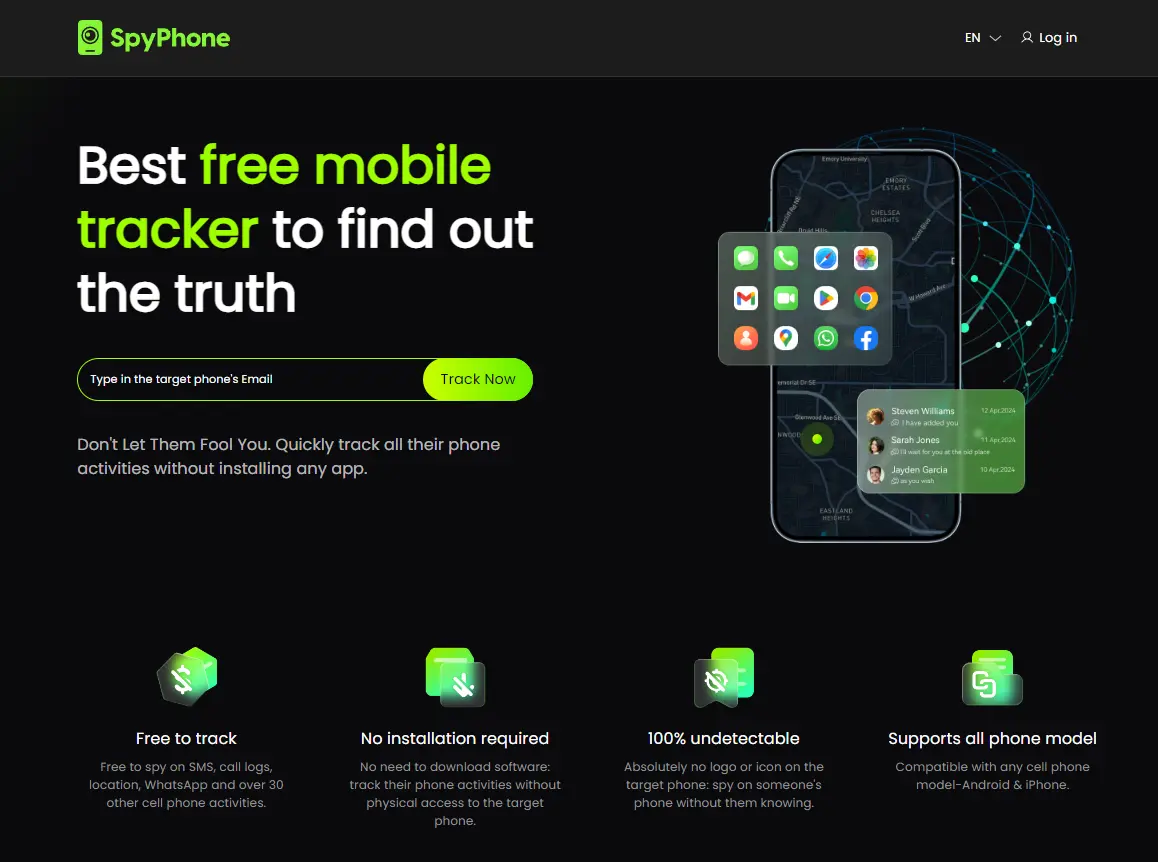Cheating is a sad reality in relationships today. It can create huge emotional pain and problems with trust. Infidelity has the power to break trust and leave emotional wounds that can last for a long time.
If you have suspicions about your spouse cheating on you, it is very important to handle the situation carefully and strategically. Questions to your unfaithful spouse can open up important conversations. And once those conversations start, you may find yourself pondering how to forgive.
This is an article about learning to ask appropriate questions that reveal the truth, why your partner cheated, and what should you do next.
By using this guide, you can gain understanding and make a plan for handling the situation with clarity. Thinking about how to catch a cheater? Look for changes in their appearance.
Part 1. 10 trick questions to catch a cheater
Discovering infidelity is a painful process, but asking the right questions can help you uncover the truth. Here are ten trick questions designed to catch a cheater by observing their reactions and responses. These questions are crafted to seem innocent while subtly probing for inconsistencies or revealing behavior.
1. "Wouldn't it be fun to do everything together?"
This question seems like a playful suggestion, but it can reveal a lot about your partner's comfort level with you. If they hesitate or seem uncomfortable with the idea, it could be a sign they have something to hide or are not fully invested in the relationship.
2. "Did you know my friend works at that new place you’ve been visiting?"
Mentioning a friend who supposedly works at a location your partner frequents can be a subtle way to gauge their reaction. If they seem nervous or overly defensive, it might indicate they’re hiding something about their visits.
3. "Why don't we share our social media accounts for fun?"
Suggesting that you both share social media accounts can seem like a harmless idea to strengthen your bond. However, if your partner resists or makes excuses or deletes everything, it might be because they have something to hide in their online interactions.
4. "What do you think about couples therapy?"
Bringing up couples therapy can help you understand how serious your partner is about resolving issues in your relationship. If they are dismissive or defensive, it might indicate they are not committed to working through problems honestly.
5. "Why aren’t we as close as we used to be?"
Starting a conversation about the emotional and physical distance in your relationship can be revealing. If your partner struggles to provide a clear answer or becomes defensive, it might suggest they are distancing themselves due to infidelity.
6. "What’s your opinion on open relationships?"
Discussing the concept of open relationships can provide insight into your partner's views on monogamy and fidelity. Their response might reveal whether they are satisfied with your relationship or considering other options.
7. "Do you mind if I hang out with an old friend tomorrow night?"
Suggesting you meet up with an old friend and observing your partner's reaction can be telling. A cheater might react with anger or jealousy, while a trustworthy partner will likely be supportive and unconcerned.
8. "If you could change one thing about our relationship, what would it be?"
This question can prompt your partner to reveal underlying issues or dissatisfaction. A cheater might inadvertently confess their infidelity or point out flaws that justify their actions in their mind.
9. "Why do you think we argue more these days?"
Asking about the increase in arguments can highlight whether your partner is aware of the tension and willing to address it. A cheater might deflect the question or provide weak excuses, revealing their guilt.
10. "I heard that unexpected gifts might indicate guilt. What do you think?"
Making an offhand comment about guilt and gifts can be a clever way to observe your partner's reaction. If they seem uncomfortable or overcompensate, it might indicate they are trying to hide their guilt through gifts.
Part 2. What to do if your spouse refuses to answer questions or lies
The best solution for a partner not answering your questions, or if you know he's lying to you, is to show him the evidence. So how do you find evidence that your partner is cheating on you and do it without his knowing. SpyPhone can help you secretly collect evidence of your partner's cheating and catch cheaters.
2.1. Use a monitoring app-How SpyPhone can help
SpyPhone is a free spy app that allows you to monitor almost all the data on your partner's cell phone, such as who he communicates with? where he goes? what apps he uses most? are there any chat apps like games installed on phone? what he browses on the Internet? etc. You can easily see everything he does on his phone and export the data for evidence.
2.2. How to use SpyPhone
There is nothing that can stop you from catching a cheating partner. If anything, then the only thing that will stop you from looking for evidence that your spouse is cheating on you is setting up SpyPhone. Setting up SpyPhone is a simple process that takes only a few steps to complete.
Step 1. Enter a valid email
Visit SpyPhone's official website and enter a valid email.
Step 2. Choose a device
Choose to bind iOS/Android according to the type of device your partner is using. Then follow the operation guide to bind the selected device. There is no need to install an app to make monitoring more convenient.
Step 3. Wait for data synchronization and view data
After the binding is done, enter the dashboard, there will be a data synchronization process, wait for the data synchronization to complete. The dashboard will show the data quantity of all apps. Click on individual apps, like Snapchat, You can view the details of your partner's Snapchat cheating.
Part 3. 10 questions to ask your unfaithful spouse after catching him
Once you have evidence and your partner knows that you are aware of cheating, it's time to ask more direct questions to understand the situation better:
1. "Why did you cheat on me?"
Not all men cheat because they are tired of the relationship. Understanding their reasons can help you decide on the next steps. It’s important to listen to their explanation to understand the root cause of the infidelity.
2. "How long has this been going on?"
The duration of the affair can provide insights into their level of commitment to the other person. It can also indicate how deep the relationship might have been. You should to ask how long their relationship has lasted, how long they have been chatting on WhatsApp/online.
3. "Who is the person you cheated with?"
Knowing who the other person is can help you understand the context of the affair. It can also help you assess the threat to your relationship and make informed decisions.
4. "How did you meet them?"
This question can uncover the circumstances leading to the affair. Understanding how they met can provide context and help you understand if there were any red flags you missed.
5. "Did you ever think about the impact on our relationship?"
Understanding their awareness of the consequences can indicate remorse or lack thereof. It can help you gauge their understanding of the gravity of their actions.
6. "Did you use protection?"
This is crucial for health reasons and shows the extent of their carelessness. It’s important to ensure your health and safety in the aftermath of infidelity.
7. "What did you tell the other person about us?"
This can reveal how they portrayed your relationship with the affair partner. It can also provide insights into their mindset during the affair.
8. "Do you still have feelings for them?"
Their emotional attachment can indicate whether they are willing to work on your relationship. It’s important to know if they are still emotionally invested in the other person.
9. "Are you willing to cut off all contact with them?"
This is essential for rebuilding trust and moving forward. Their willingness to cut ties can show their commitment to repairing your relationship.
10. "What are you willing to do to rebuild my trust?"
Their willingness to make amends and take steps to rebuild trust is crucial for any potential reconciliation. It’s important to know if they are ready to put in the effort to heal the relationship.
Part 4. What are the differences in motivations for cheating between men and women
Men often cheat for physical reasons, seeking novelty and excitement. They may be driven by a desire for sexual variety or to reaffirm their masculinity. Women, on the other hand, may cheat for emotional reasons, seeking intimacy and connection that they feel is lacking in their current relationship.
They might be looking for emotional support, affection, or a sense of being valued and understood. Understanding these differences can provide context to the affair and guide your next steps. It's important to recognize that individual motivations can vary, and each situation is unique.
Part 5. What are the common signs of cheating
Cheaters generally have noticeable changes in behavior and mood.
5.1. Behavioral changes
- Increased secrecy with devices: They might guard their phone or computer more closely, changing passwords frequently, or being overly protective of their privacy.
- Unexplained absences: They may have frequent and unexplained absences or trips, often with vague or inconsistent explanations.
- Sudden change in appearance: They might start paying more attention to their appearance, such as new clothes, different grooming habits, or a sudden interest in fitness.
5.2. Emotional changes
- Increased defensiveness: They might become more defensive when asked simple questions or react strongly to accusations of infidelity.
- Emotional distance: There may be a noticeable emotional distance, with them being less affectionate or emotionally available.
- Unexplained mood swings: They could exhibit erratic behavior, such as unexplained mood swings, irritability, or hostility, often without a clear cause.
Part 6. What to do now
Discovering that your partner has been cheating is a devastating blow, and knowing how to proceed can be overwhelming. Here’s a guide to help you navigate this difficult time.
6.1. Prioritize your feelings
First and foremost, acknowledge your emotions. It’s normal to feel hurt, angry, betrayed, and confused. Permit yourself to feel these emotions without judgment. Prioritize your mental and emotional health by seeking support from trusted friends, family, or a professional counselor.
6.2. Retain evidence
Retaining evidence is crucial in confirming your suspicions and addressing infidelity. Using tools like SpyPhone can help you gather concrete evidence of your spouse's infidelity discreetly. SpyPhone allows you to monitor data on your partner's cell phone, including text messages, locations, app usage, and internet browsing history. This information can be vital in understanding the extent of infidelity and making informed decisions about your relationship.
6.3. Decide whether to separate or continue
Deciding whether to stay or leave after discovering infidelity is a deeply personal choice. Consider the following steps:
- Reflect on Your Relationship: Evaluate the history of your relationship and the depth of your emotional connection.
- Assess the Severity: Consider the extent of the infidelity. Was it a one-time mistake or a prolonged affair?
- Evaluate Remorse and Willingness to Change: Is your partner genuinely remorseful? Are they willing to seek counseling and work on rebuilding trust?
- Consider Future Trust: Reflect on whether you believe you can eventually trust your partner again.
- Think About Your Well-being: Prioritize your mental, emotional, and physical well-being in your decision-making process.
6.4. What to do if you decide to stay in the relationship
Seek Professional Help: This can help you navigate this challenging period. A marriage counselor or therapist can provide a safe space to explore your emotions, improve communication, and develop strategies for rebuilding trust.
Set Boundaries and Expectations: If you decide to stay and work on the relationship, it’s crucial to set clear boundaries and expectations. Both partners should agree on what is acceptable and what is not, and how to address any future issues that may arise.
Open Communication: Maintain open and honest communication with your partner. Transparency is key to rebuilding trust. Allow yourself to express your feelings and concerns, and encourage your partner to do the same.
Rebuild Trust: Rebuilding trust takes time and consistent effort from both partners. Small, consistent actions can gradually restore faith in the relationship. Be patient with yourself and your partner as you navigate this journey together.
6.5. Questions to ask yourself
Here are some crucial questions to ask yourself as you contemplate your next steps:
- Can I Forgive Him/Her?
- Do I Still Love My Partner?
- Is My Partner Truly Remorseful?
- Can We Rebuild Trust?
- What Do I Need to Feel Safe in This Relationship?
- Am I Willing to Go Through the Painful Healing Process?
- What Are My Boundaries and Non-Negotiables?
- Can I See a Future Together Without Resentment?
- Is My Partner Committed to Change and Counseling?
- How Will This Decision Affect My Children (if applicable)?
- Do I Have the Support I Need from Friends and Family?
- Am I Ready to Let Go of the Relationship if Necessary?
- Can I Accept That Healing Takes Time?
- Am I Prepared for Potential Setbacks in the Healing Process?
- What Are the Financial and Practical Implications of Separation?
- Do I Have a Support System in Place?
- Can I Handle the Emotional Roller Coaster That Comes with Healing?
- Am I Open to Professional Counseling for Myself and/or the Relationship?
- Can We Create a New Foundation Based on Honesty and Transparency?
- What Steps Can We Take to Prevent Future Infidelity?
Part 7. Conclusion
Discovering infidelity in a relationship is undoubtedly one of the most challenging situations a couple can face. However, by asking the right questions, seeking support, and prioritizing self-care, it's possible to navigate through this painful experience.
Whether you choose to stay and rebuild trust or decide to part ways, the key is to prioritize your well-being and make decisions that align with your values and happiness. Remember that healing takes time, and seeking professional help can provide invaluable support along the way. Ultimately, it's about finding clarity, understanding, and, hopefully, a path forward toward healing and growth.









